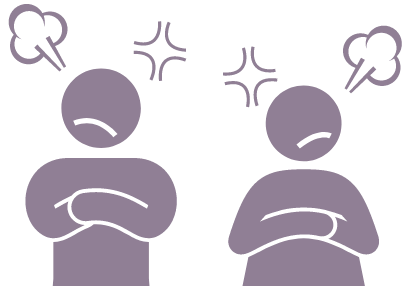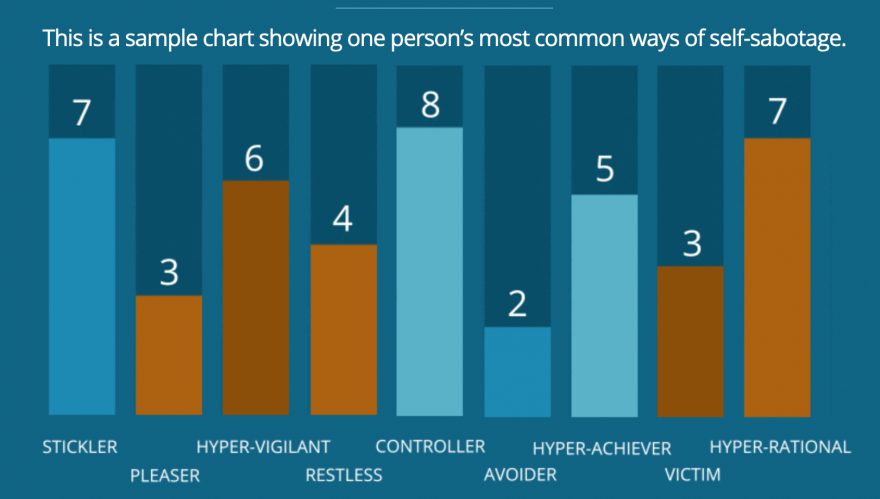To effectively communicate, we must realize that we are all different in the way we perceive the world and use this understanding as a guide to our communication with others.”
Anthony Robbins
6 May 2021

Hello!
How many times do you remember an argument breaking out at work, or at home because someone misconstrued what you said?
Or maybe you misinterpreted what your colleague was asking of you because you made an assumption based on your own biases?
I learned at an early age that tough love was the way to get things done quickly and efficiently. I tend to be “hyper-rational” and a “hyper-achiever” so short and to the point communication is more my style. Even the bosses I had used the same direct method of communication. As a result, I expect everyone to have “thick skin”. But this approach has caused me to get into trouble.
Communication is a two-way street, so if my statements are being misconstrued, or are taken as an insult, I’m not getting my message across in a constructive and beneficial manner. The way we communicate is more than just the words we use.
I've put together some tips I hope you will find helpful in improving your relationships! I'm working on improving mine!
Taking the LEAP with you!


Employing Non-defensive Communication at Work
You’re in the break room with a colleague, when he looks over and asks, “Do you always butter your bread that way?”Ha, ha, you laugh  But inside, your story is going like this
"Who does he think he is, Mr. Manners? What’s wrong with the way I butter my bread? Jerk! He’s always so critical!"
 FREEZE FRAME! FREEZE FRAME!
If something as minor as buttering bread can provoke such feelings of defensiveness, imagine what can happen with more important issues at work or at home!
 What happens, says Sharon Ellison, M.S., is essentially war. Ellison, founder of Powerful Non-Defensive Communication, teaches that the way we communicate with each other uses the same principles and tactics we would use in physical combat. What happens, says Sharon Ellison, M.S., is essentially war. Ellison, founder of Powerful Non-Defensive Communication, teaches that the way we communicate with each other uses the same principles and tactics we would use in physical combat.
We believe we must protect ourselves from an “attack” by being defensive. As soon as we feel any threat, either of not getting what we want, or of being harmed or put down in some way, we choose from among the three basic defensive war maneuvers: surrender, withdrawal, or counterattack. Remember, our brain is too often in the “fight or flight” mode for us to respond in a more loving or curious manner.
While you’re busy defending yourself, there’s not much room for meaningful contact with others. Nor can you learn from their feedback or from your own mistakes. Your defensiveness hurts you the most. You are not even able to think about the potential gift or lesson to be learned from the situation.
The myth, says Ellison, is this defensiveness will protect us, because to be open is to be vulnerable and weak. On the contrary, in being defensive we weaken our ability to develop loving, caring and trusting relationships. We are always looking to see who is going to “stab us in the back”. This hardly bodes well for building cohesive teams in the workplace.
In a corporate setting, defensiveness can result in power struggles and unnecessary, destructive conflicts. This can often lead to great employees leaving the firm much earlier than expected, a loss of productivity and slower growth or worse – losses. And if you, or your team, are defensive with customers and clients, you are more likely to lose them as well, exacerbating the harm. Ellison estimates we use 95% of our communications energy being defensive.
She describes the 6 most common defensive reactions as follows:
1. Surrender-Betray. We give in but defend the person’s mistreatment of us, taking the blame ourselves. Do we do this because we don’t want to ruffle any feathers and want to please the other?
2. Surrender-Sabotage. We cooperate outwardly but undermine the person in some way. Passive-aggressive behavior falls into this category.
3. Withdrawal-Escape. We avoid talking to someone by not answering, leaving the room or changing the subject. We don’t like confrontations and all those messy emotions.
4. Withdrawal-Entrap. We refuse to give information as a way to trap the other person into doing something inappropriate or making a mistake. This can be very manipulative and controlling.
5. Counterattack-Justify. We let someone know she is wrong to be upset with us, explaining our own behavior and making excuses. This often comes across as being arrogant and uncaring.
6. Counterattack-Blame. We attack or judge the other to defend ourselves. We can’t admit when we are wrong.
To curb your own defensive reactions, consider some of the following alternatives.
- If you feel criticized, rather than reacting or retreating, take several deep breaths, tell yourself it’s only feedback and just listen. You can correct the record later, if necessary.
- Consider if there is a kernel of truth in the criticism. There is usually at least 10% truth. If there is, acknowledge it and work to improve in that area. Your willingness to acknowledge when you are wrong inspires colleagues, clients and management to feel confident in you.
- Realize that sometimes people’s criticisms are all about the “story” they have made up around their own situation. Try not to take it personally or take it on as your responsibility. As the saying goes, “Not my circus, not my monkeys!”
- When someone uses the words “always” and “never,” ignore those words and focus instead on the rest of the message.
-
Be curious about why someone has reacted to what you have said or why they said what they did? Is there an underlying piece of information you can gather to improve the situation?
-
Listen for the (usually) hidden need expressed in a person’s complaint or anger, acknowledge the need, and then see whether there is something you can do to meet it. For instance, when a customer is complaining, what he may need is to feel significance, to know that he matters to you. Address that need in a clear and compassionate manner and you regain not only his confidence, but his loyalty as well.
 Let’s revisit the earlier situation and change it Let’s revisit the earlier situation and change it
to communicate more effectively with less defensiveness…
You’re in the break room with a colleague, when he looks over and asks in a fun tone of voice, “I’m curious, why do you butter your bread that way?”
Ha, ha, you laugh. 😂
“It goes way back to when I was a child and my grandmother and I would see who could have the most fun making a peanut butter sandwich!
It always brings back such great memories for me.”
This exchange is expressed without judgment and invokes curiosity, empathy and compassion; all of which builds trust in a relationship.
Changing how we communicate as individuals - learning that we can protect ourselves and have greater influence without using judgment and defensiveness - can not only dramatically shift our professional and personal relationships, but can also improve the bottom line.

 Think back to a conversation you had this week when someone became immediately defensive. Think back to a conversation you had this week when someone became immediately defensive.
If you could go back in time, how would you change the conversation so it was less judgmental? How would you use empathy, curiosity and kindness to strengthen the trust between the two of you?

BUILD YOUR COMMUNICATION SKILLS

Are you looking to build your communication skills through increasing your empathy, curiosity and investigations skills?
Start by taking the Positive Intelligence Assessment to help determine how you may be getting in your own way. Get access here
COMPLIMENTARY REINVENT STRATEGY SESSION
 Join me in a one-hour complimentary strategy session to help determine how you can move forward in getting unstuck, and gain momentum to move in the right direction for you. Join me in a one-hour complimentary strategy session to help determine how you can move forward in getting unstuck, and gain momentum to move in the right direction for you.
During our session, we will go over one or two exercises and determine the one next step you can take on your own after the call to keep the momentum going. Click here to schedule your session


Renée Blasky is the Founder and CEO of The LEAP Network Ltd.
After realizing her career in the financial industry was no longer exciting, Renée started her journey as a Start-up Business Coach by completing the Tony Robbins and Cloe Maddanes Core 100 Strategic Intervention program and she has never looked back!
Through her Get Results Without the Overwhelm Program, she loves working with new solo entrepreneurs to help them become the CEO of their companies. Using her unique process she helps them strategize, set stick-worthy goals, and implement an action plan. The program includes valuable resources to help them stay focused, create the right mindset, and stay accountable. She also gently pushes her clients outside of their comfort zones and helps them face their fears so they can achieve their dreams. Renée works with her clients through various online courses, webinars, one-on-one coaching, and group coaching programs.
In addition to her own Get Results Without the Overwhelm Program, Renée is a certified trainer for Marci Shimoff's Happy for No Reason and Susan Jeffer's Feel the Fear and Do It Anyway courses based on their respective books of the same name. She is also in the process of getting certified in the Positive Intelligence program.
Renée, who obtained her CFA Charter in 1990, has over 30 years of experience in the finance industry and first entered into the world of entrepreneurship in 1997 after discovering several ethical lapses at her places of employment. She decided it was best to start her own business so she could dictate the values and beliefs from which to run her business. Renée's coaching clients are based all over the world, and range from various types of coaches, import/exporters, to direct line marketers.
Learn more about Renée and The LEAP Network by visiting her website here: www.theleapnetwork.coachesconsole.com.
You can also send an email directly to Renée at rkblasky@theleapnetwork.co (not “.com”)
Please join us on social media:
   
|